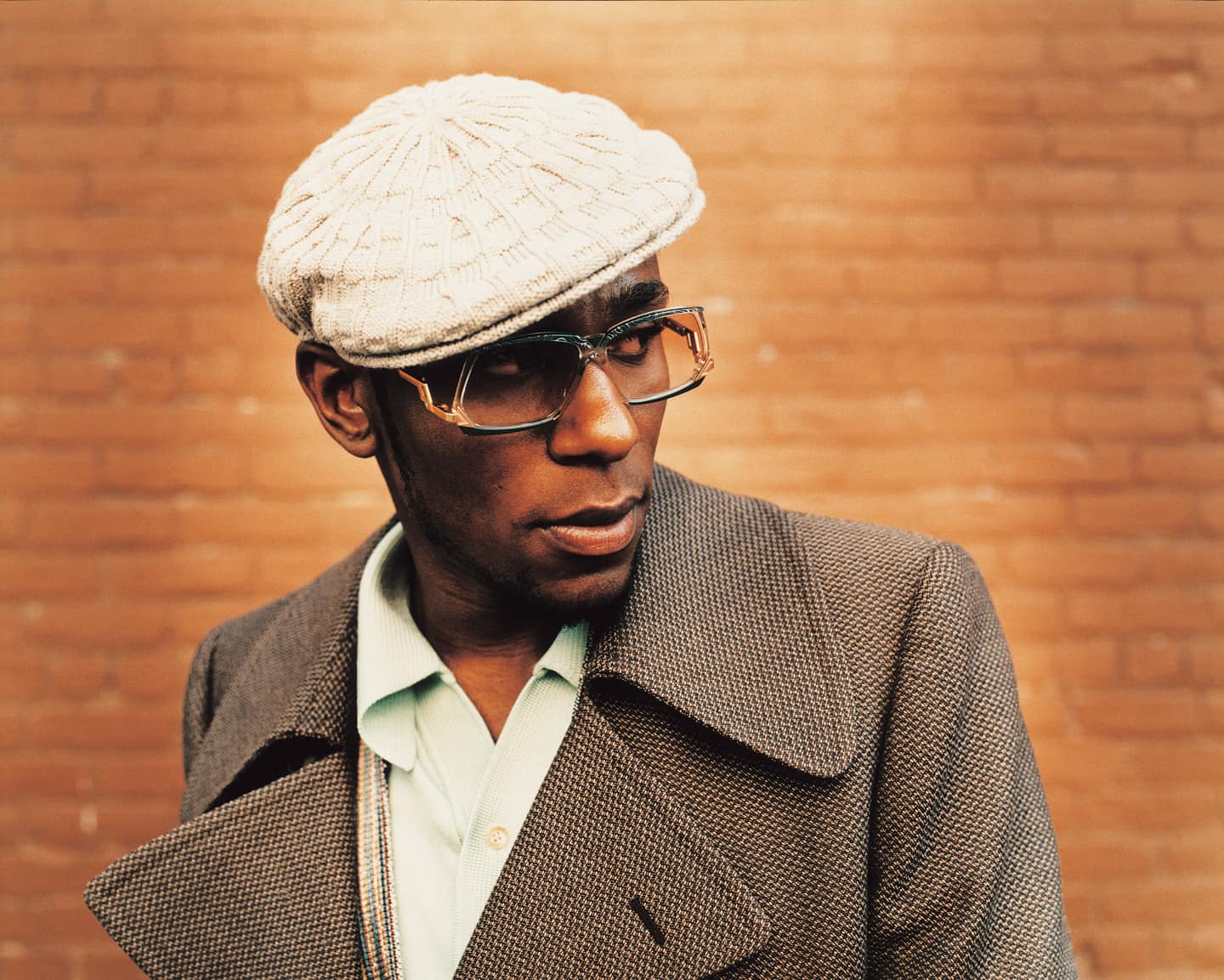
Mos Def’s Critique Of America Still Rings True, 10 Years Later
From The FADER’s November 2004 issue, Mos Def argues, “Pain—that’s black in America. I’ll give you some reasons why.”
For the 25th issue of The FADER, published 10 years ago, Mos Def was one of three artists who gave us their uncensored, first-person account of American life. Here are the Brooklyn rapper/producer's words online for the first time, and they're as poignant as ever.
MOS DEF: Pain—that's black in America. I'll give you some reasons why. We built the global economy with our sweat, our blood, our bones. We've given this country many beautiful things: innovations in science, medicine, technology, art. And they don't give a fuck about us, for the most part.
My story begins in the streets. There you have it: however street people live around the world, I can identify with that. That's where I am from; I'm a person from the street who had an opportunity and was afforded the chance to see the world. Those experiences have shaped me. I remember a moment: I'm seven years old and I'm looking out my window from the ninth floor of the Roosevelt Projects. There's garbage everywhere. People walking through the garbage and the buildings look bad. It's winter–kids don't have proper clothes. And I said to myself, Why do we have to live like this? We're not bad people.
But at the time, looking out of the window in the projects, I was thinking, Why me? That was a defining moment for me. That's when I decided society doesn't really care very much about me or about people. It's like when Jeffrey Wright's character in Angels in America said, "I don't have to love America—I live here."

"Everybody's political, whether you recognize it or not. Just 'cause you don't believe it don't mean it ain't true. Everybody's political. There's not a distinction."
For a while I thought I had to make money to get respect. And when I got the opportunity to do that, people were mad at me for it–that I could travel and sit first class and all those things that don't mean much but mean so much to so many. When I went abroad I was treated differently. I was treated with a lot less fear; not no fear, but less–markedly less. I received a lot more respect. It made me think about what my father used to say to me: "The world is too big to stand in one place and suffer."
Now I try to look at the world as what it is, rather than what is pleasing to my eye or what I'd like to see. Just life. Experiences. My world influenced and shaped me, like it does with everyone. that's why everybody's political, whether you recognize it or not. Just 'cause you don't believe it don't mean it ain't true. Everybody's political–there's not a distinction. The way that I see the world now is based on where I'm at now.
The saying goes that suffering is an option. The beginning part of that says that pain, like anything else, is unavoidable. So when I think of America I don't just think of pain, because pain is a natural part of living. I think of suffering. Everybody hurts, but Americans suffer. And the leaders here make other suffer, in other places.
Americans are not unique. They like to think that, but they're just citizens of the world. And if they were to adopt that attitude, that would make them unique. That would make them special. When you try to be connected to other people, that makes you unique. You don't do that by shutting yourself off and being self-absorbed. That makes you foolish.
But what the hell do I know? This is just my opinion. America is where I live. It's like any other wild block all over the world. It's where I am at the moment and it ain't the only place to be–the map will tell you that. It's got its good points and it's got its bad points. A good thing about being an American musician in 2004: a European audience. A bad thing about being an American musician in 2004: an American audience.
"Americans are not unique. They like to think that, but they're just citizens of the world. And if they were to adopt that attitude, that would make them unique."
When it comes to the presidential election, I'm not listening to those people. I heard those machines were broken. I think that they should fix them. I think they should fix all of those machines or throw them away and start over. Until then, I can't listen to those people talk. It's like listening to somebody lie all the time, and I have no use for that in my life.
Instead, what makes me angry is peoples' lack of belief in the Creator and in themselves. Peoples' lack of love and respect for themselves and for their neighbors. Peoples' fear of tyranny. Peoples' greed. Their insincerity. Their contrivances. Their arrogance. Their breath. And I forgive them–things that really make me angry are things I need to repair about myself. I ain't really mad at nobody; I gotta get better.
I think my music can change things about the world, and the thing that I would like to change the most is for me people first to have sovereignty of thought and spirit–real freedom. I think they need it–very badly. But music can't change that. People can change that. Music is nothing without people–nothing. It can't even happen without people.
And we're just instruments, you know? People can't happen without the Creator, so if my music could change anything about America, I would want it to help people focus on the Creator. And maybe I don't even need music to do that. But if that would help, let's go.
